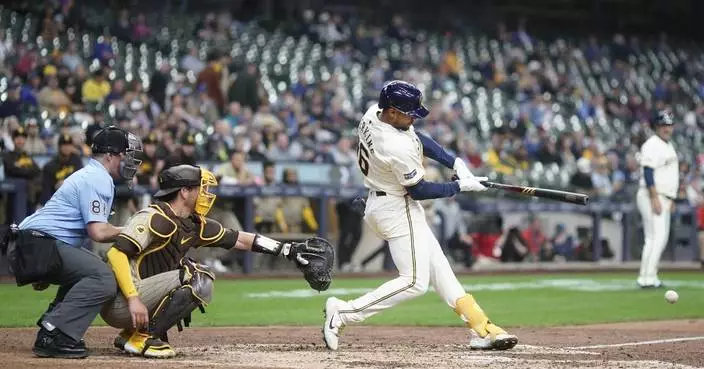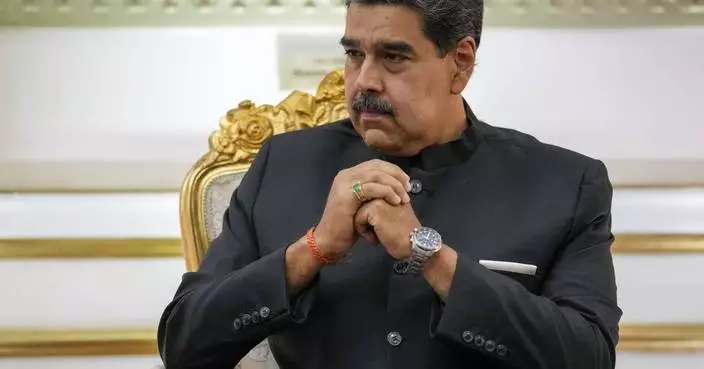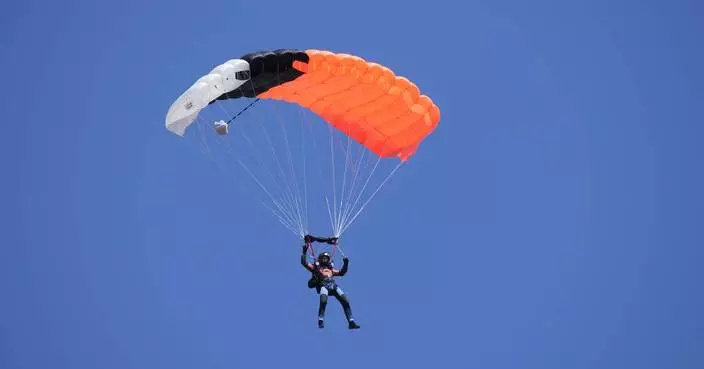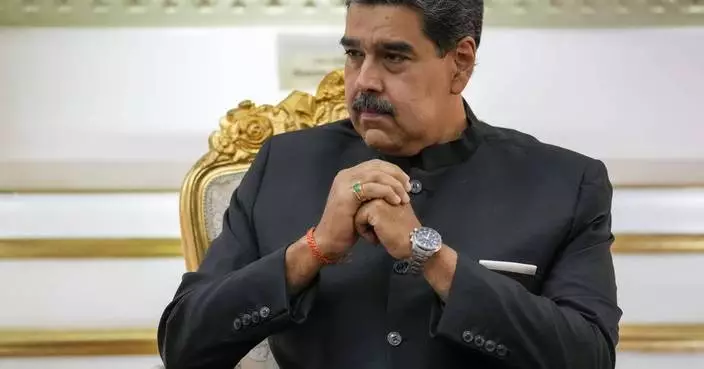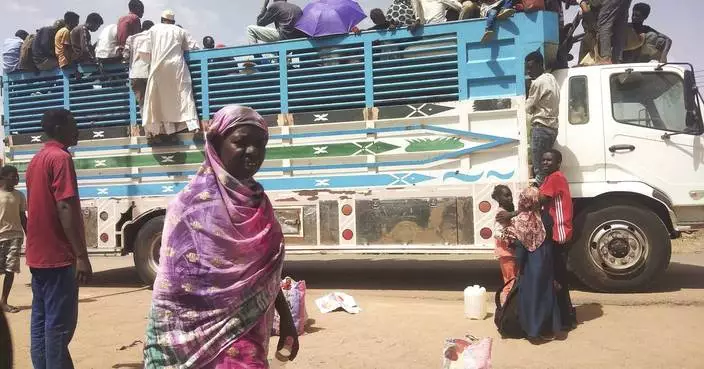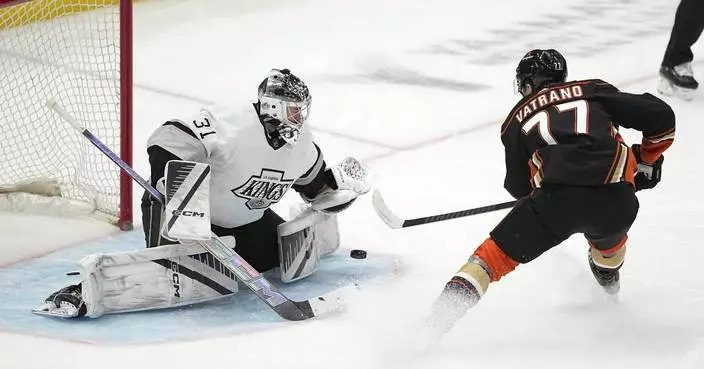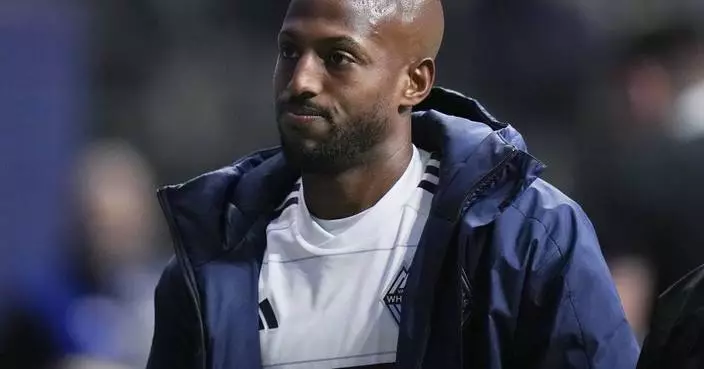A minor clash broken out in Venezuela’s capital Thursday between university students and national police wearing riot gear following a speech by opposition leader Juan Guaidó at the Central University of Venezuela campus.
Guaidó is rallying support for nationwide protests planned for Saturday against the government of President Nicolás Maduro, trying to re-energize a campaign launched in January to overthrow the socialist government.
As Guaidó spoke, national police carrying shields formed a blockade at one of the campus’ entrances. The students approached them with white flowers, urging them to abandon Maduro.
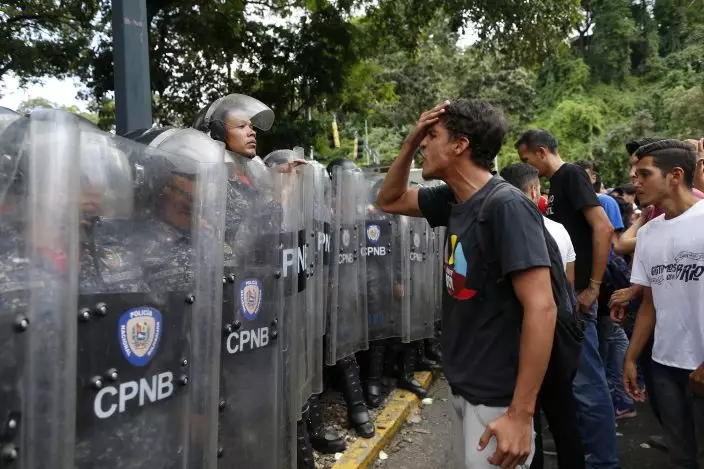
A group of student protesters taunt Bolivarian policemen blocking their path, in Caracas, Venezuela, Thursday, Nov. 14, 2019. (AP PhotoAriana Cubillos) (AP PhotoAriana Cubillos)
The protest by dozens of students chanted “Freedom” and “Guards, listen and join the fight.”
The students then tried to charge the police line and threw rocks, drawing pepper spray and tear gas in return. The confrontation ended with no injuries.
Maduro’s Foreign Affairs Minister Jorge Arreaza also announced Thursday that the government had retaken control of Venezuela’s embassy in Brazil’s capital following a brief disturbance.
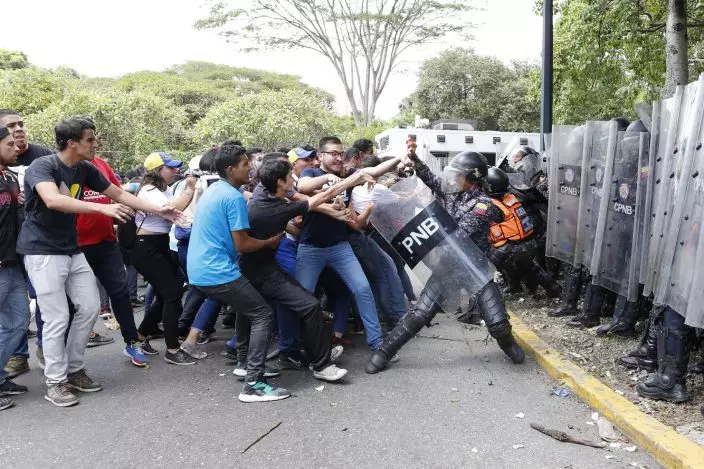
A Bolivarian policeman tries to fend off a group of student protesters, in Caracas, Venezuela, Thursday, Nov. 14, 2019. (AP PhotoAriana Cubillos)
A group of people backing Guaidó’s claim to be Venezuela’s legitimate president occupied the nation’s embassy in Brasilia for about 10 hours Wednesday. Sympathizers on both sides briefly engaged in pushing and shoving in front of the embassy.
Maduro’s government says the group invaded the embassy, while the Venezuelan representative to Brazil named by Guaidó said embassy staff opened the gate and let them inside.
The government of Brazil’s President Jair Bolsonaro is among more than 50 nations that recognize Guaidó as Venezuela’s leader. However, Bolsonaro said in a statement Wednesday that he had no knowledge of the group’s plans to occupy the embassy.
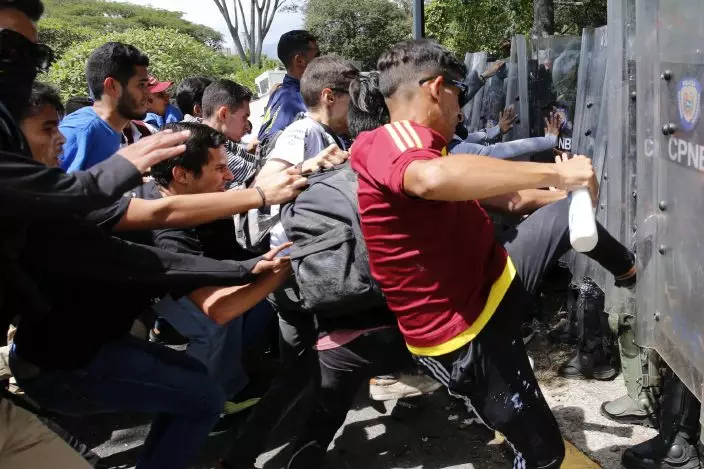
A group of student protesters attack a cordon of Bolivarian policeman blocking their path, in Caracas, Venezuela, Thursday, Nov. 14, 2019. (AP PhotoAriana Cubillos)
Arreaza in a statement thanked the Brazilian “social movement” for its help resolving the situation. He said the group had peacefully left the building.
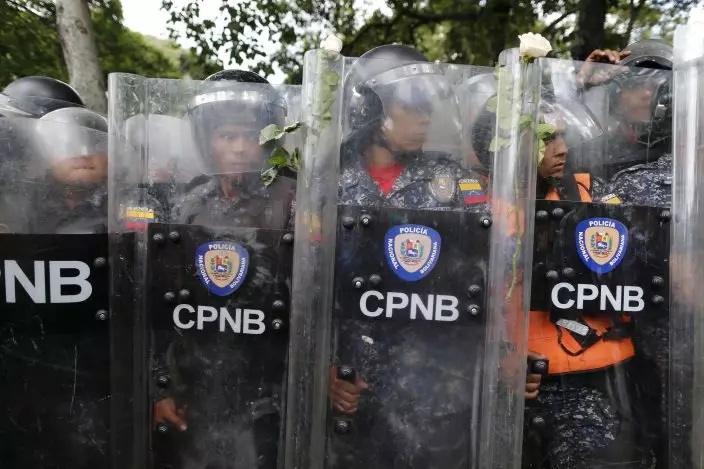
Bolivarian policemen look out from their behind their shields as they create a cordon to block student protesters, in Caracas, Venezuela, Thursday, Nov. 14, 2019. (AP PhotoAriana Cubillos)
NCAA athletes will be immediately eligible to play no matter how many times they transfer — as long as they meet academic requirements — after the association fast-tracked legislation Wednesday to fall in line with a recent court order.
The NCAA announced the Division I Council's decision becomes official Thursday when its meeting adjourns. The change still needs to be ratified by the DI Board next week, but that is expected.
The new rules will go into effect immediately, though in reality they have already been enacted through a lawsuit filed late last year.
Transfer windows, which are sport-specific, remain in place and require undergraduate athletes to enter their names into the portal at certain times to be immediately eligible at a new school. Graduate students can already transfer multiple times and enter the portal outside the windows while maintaining immediate eligibility.
A coalition of state attorneys general late last year sued the NCAA, challenging rules that forced athletes that wanted to transfer multiple-times as undergraduates to sit out a season with their new school.
A judge in West Virginia granted the plaintiffs a temporary injunction, lifting requirements for multiple-time transfers to request a waiver from the NCAA to be immediately eligible to compete.
The NCAA quickly requested the injunction be kept in place throughout the remaining school year to clear up any ambiguity for athletes and schools. The association has had to issue guidance to its members to clarify what that means for next season. Now the rules match the court ruling.
By eliminating the so-called year-in-residence for transfers, an athlete must be academically eligible at the previous school and not subject to any disciplinary suspension or dismissal to compete immediately at a new school. Transferring athletes must also meet progress-toward-degree requirements before competing.
“We hope that this practical approach to transfer eligibility requirements will encourage student-athletes to make well-informed decisions about transferring and the impacts such a move could have on their ability to graduate on time in their degree of choice, particularly as it relates to transferable credits,” Florida deputy athletic director and council chairwoman Lynda Tealer said in a statement.
The board will ask the committee on academics to explore creating a new metric — similar to the NCAA's Academic Progress Rating — that would hold schools accountable for graduating the transfers they accept.
The portal windows are currently open for both football and basketball, and the lifting of restrictions on multiple-time transfers has led to an uptick in athletes looking to switch schools.
In a notable move that would not have been permissible without a waiver under previous rules, Alabama offensive tackle Kadyn Proctor entered the portal in January after Crimson Tide coach Nick Saban retired, committed to Iowa, but then changed his mind during the spring and has reentered the portal with the intention to reenroll at Alabama.
The DI Council also moved forward on legislation that would allow schools to be more actively involved in securing sponsorship deals for their athletes. Schools could still not directly pay athletes, but they could facilitate NIL opportunities between third parties and athletes.
AP Sports Writer John Raby in Charleston, West Virginia, contributed to this report.
Follow Ralph D. Russo at https://twitter.com/ralphDrussoAP and listen at http://www.appodcasts.com
AP college football: https://apnews.com/hub/college-football
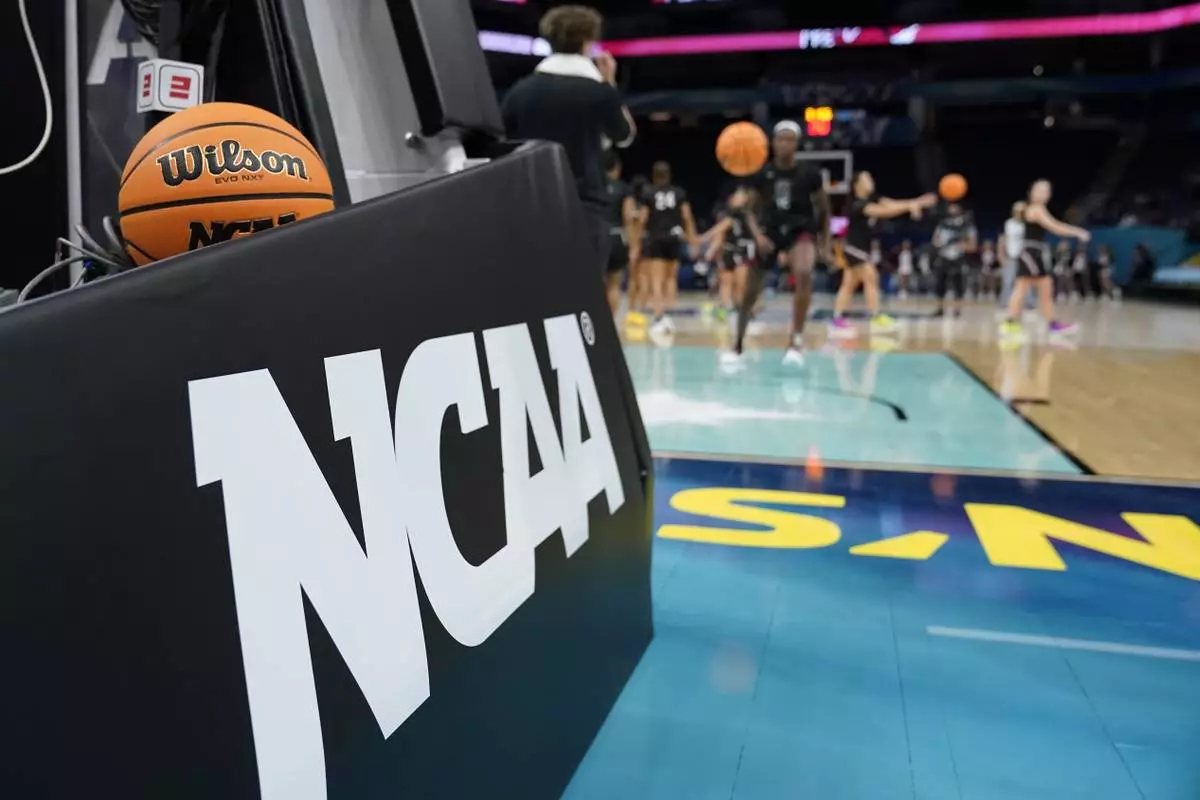
FILE - South Carolina players work out during a practice at the Women's Final Four NCAA college college basketball tournament, Saturday, April 2, 2022, in Minneapolis. NCAA athletes will be immediately eligible to play no matter how many times they transfer — as long as they meet academic requirements — after the association fast-tracked legislation Wednesday, April 17, 2024, to fall in line with a recent court order. (AP Photo/Eric Gay, File)
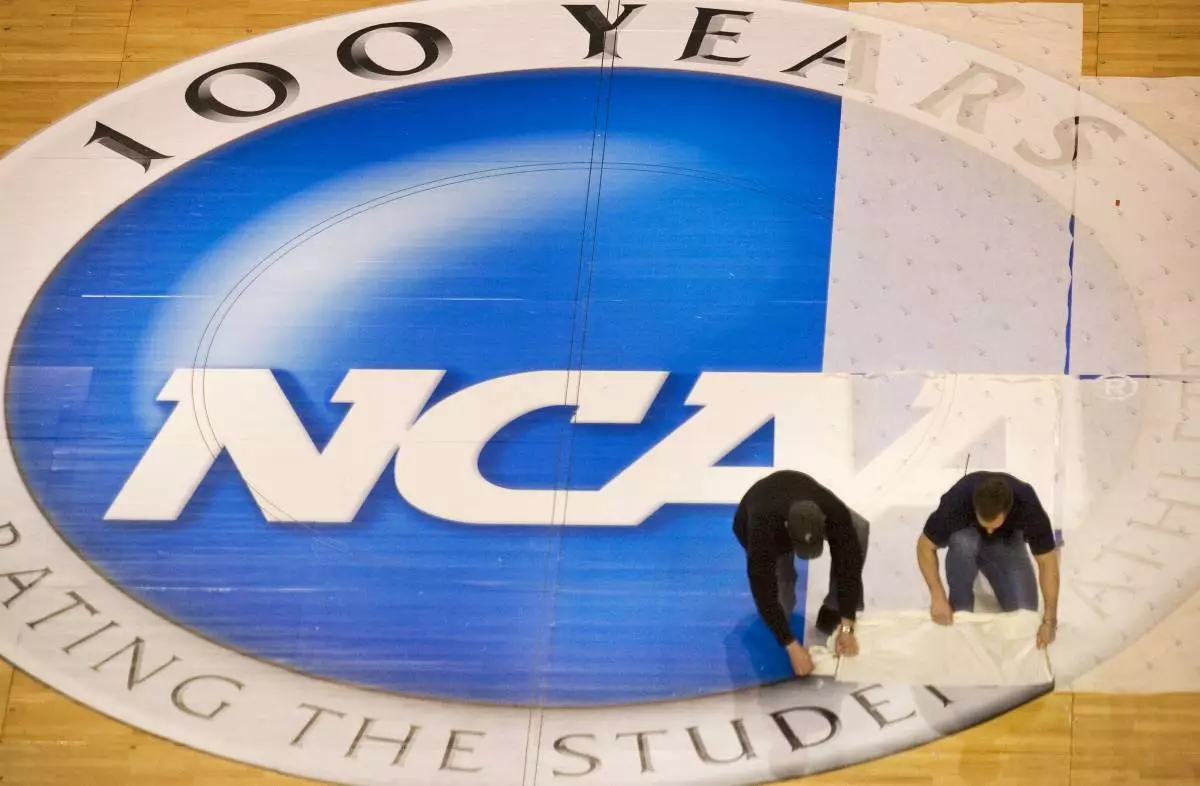
FILE - Wachovia Center operations manager Jim McDonald, left, and carpenter foreman Tim Allen remove the protective film covering the NCAA logo at mid-court on the center's basketball court, Wednesday, March 15, 2006, in Philadelphia. NCAA athletes will be immediately eligible to play no matter how many times they transfer — as long as they meet academic requirements — after the association fast-tracked legislation Wednesday, April 17, 2024, to fall in line with a recent court order. (Ed Hille/The Philadelphia Inquirer via AP, FIie)









